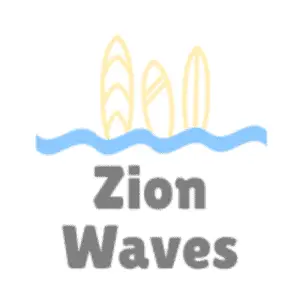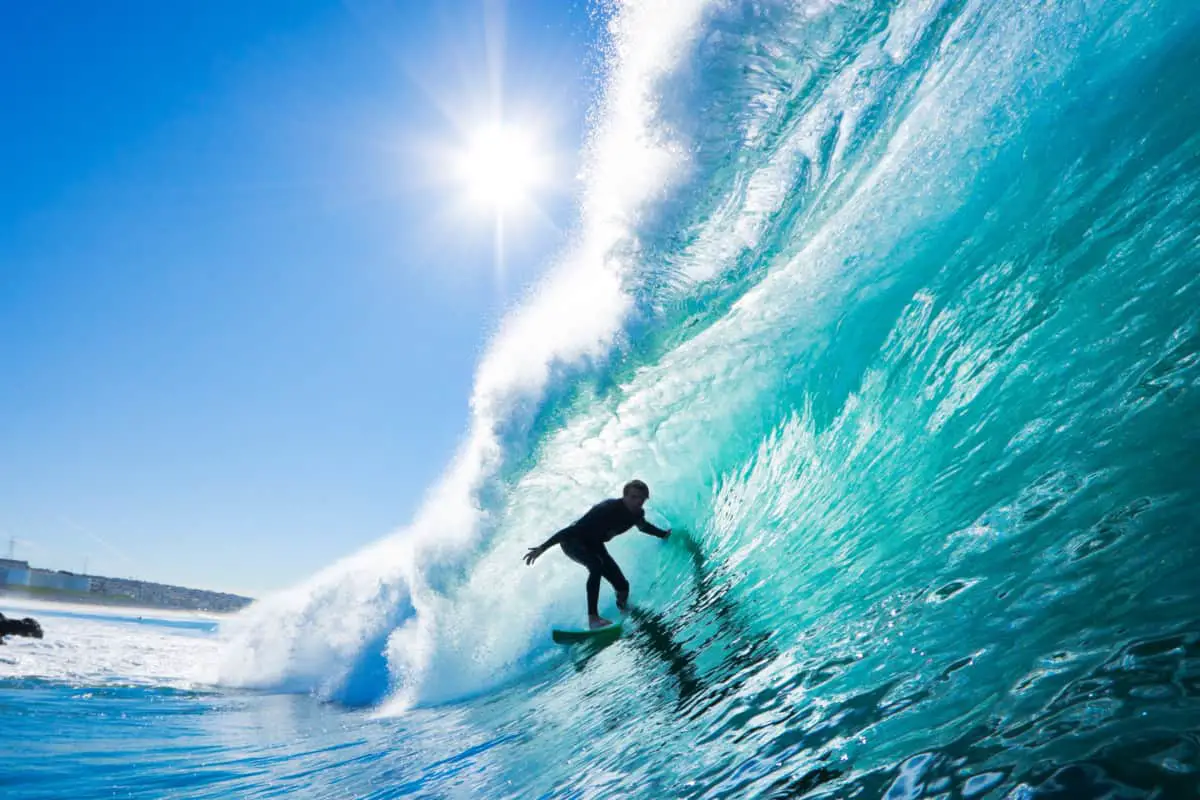Both seasoned and novice surfers use the term “gnarly” to describe a particular kind of wave. The word gnarly derives from surfing’s rich jargon, and it can mean many things to different surfers.
Gnarly has both positive and negative meanings in surfing. It could be used to mean hard and dangerous waves, a fun-filled day at the beach, or someone skilled at surfing. Therefore, when surfers use the term gnarly, one should consider the context before interpreting it.
In this article, I’ll describe the common usage of the term “gnarly” in surfing and examples of its use. Read on for further information on these and some other terms that add to the artistry of surfing.
What Surfers Mean When They Use the Word Gnarly
As I mentioned, the term gnarly has different meanings in surfing, both positive and negative. In general, the interpretation will depend mainly on the context one uses it.
Let’s look at some interesting meanings of this word in surfing.
Hard and Dangerous Waves
Surfers use the word “gnarly” to describe a dangerous, difficult wave that breaks over rocks or other obstructions, causing whitewater turbulence. This means that a gnarly wave looks menacing with high chances of injury if you’re not careful.
Therefore, you should stay away from it if you don’t want to get hurt.
An Eventful Day at the Beach
If a surfer says that they had a “gnarly day,” another way of saying amazing, more likely than not, they probably had a day filled with fun and excitement. Surfers usually use this term after days when huge waves and high winds make for some great surfing experiences.
However, the extent of comparison is dependent on each surfer.
Skilled at Surfing (Shred the Gnar)
Gnarly can also be used positively to describe skilled, experienced surfers who love big waves and dangerous conditions. This means that if you’re experienced, well-versed in surfing, and have been surfing for a long time, then this term can be used to describe you.
So the next time you hear your surfing friends say “Charlie’s shred the gnar” in a conversation, you’ll have an idea of what they mean.
Other Terms Surfers Often Use and Their Meanings
In addition to gnarly, there are other terms that surfers use all the time. Let’s now talk about them in detail.
Kook
This is a beginner surfer that’s not very good at surfing. They don’t last long on the waves because their form is poor, or they can’t control themselves well enough to surf the wave instead of falling off unintentionally.
If other surfers keep calling you a kook, here are some tips that can help you improve your skills to the point you’ll hear them say you’ve shredded the gnar:
- Practice on a smaller board. Novice surfers typically use bigger boards for stability, but then they can’t control them as easily as smaller ones. Smaller boards offer more control, which is why they’re recommended for beginners.
- Watch how the experienced surfers ride. Kooks usually try to emulate more experienced surfers who look good when riding the wave. Why not watch them in action and see what you need to do? Also, you could learn from the experts by reading books such as Michael Fordham The Book of Surfing: The Killer Guide
 (available on Amazon.com) to master the sport quickly.
(available on Amazon.com) to master the sport quickly. - Focus on the basics. For beginners, it’s advisable to use simple turns and focus on balance and timing rather than trying out all sorts of fancy maneuvers. Rocking back-and-forth will give you enough experience, so just stick to that for now before trying something new later on.
- Surf with your more experienced friends. Surfing with friends is great because you share the same passion and interest in surfing the waves. However, it’s even better if they’re experienced because you’ll pick up valuable information from them on how to improve your skills all the time.
- Work out your legs and core muscles. Without strong leg muscles, you won’t be able to stand longer or maintain proper form when coming down from a wave into its pocket. Most surfers have better leg muscles than the average person because of all that kicking and paddling to get onto the waves.
Dude
A “dude” can either refer to another surfer or something cool or awesome. It can be used both as a greeting or a way to address another person. Although some may consider it a derogatory name, it’s neither degrading nor disrespectful.
If another surfer calls you dude, it’s probably not meant as an insult. Instead, they probably think that what you’re doing is cool, and they want to convey that message to you.
Rad
A “rad” person is smart, interesting, and fun to be with. It can also refer to something or an action as being amazing or awesome. In a nutshell, this term means that something is cool, but not as much as “gnarly.”
Cutback
When you take a sharp turn in the waves and go back to where you came from, usually where the wave breaks, that’s known as a cutback. This means going back to the most powerful part of the wave, which can be enjoyable.
You can make this move on a right or left wave, but you have to paddle very fast so the wave’s momentum will take you back.
This is the term used to describe the steepest part of a wave that’s perfect for surfing. It can be short-lived and temporary, but it provides good surfers with high chances of riding the waves. If you happen to ride this wave, it’s known as “riding the pocket.”
Thruster
A “thruster” is also referred to as a 3-finned surfboard. It’s normally longer and wider than other types. This ensures great stability and control while surfing.
That said, here’s a YouTube video you’d be interested in to learn more surfing terms:
Final Thoughts
Most people interpret the word gnarly as severe pain, but it has its roots in describing dangerous or frightening things.
The word is rooted in surfer culture, starting back when surfing first began. When waves were particularly hard to handle for beginners, they would cry out, “That’s Gnarly!” because of how hard it was to take on those waves.
Today, it can indicate anything from an unruly ocean condition to a particularly difficult-to-perform move. One example would be a double overhead wave that one is attempting a drop in the barrel on.

